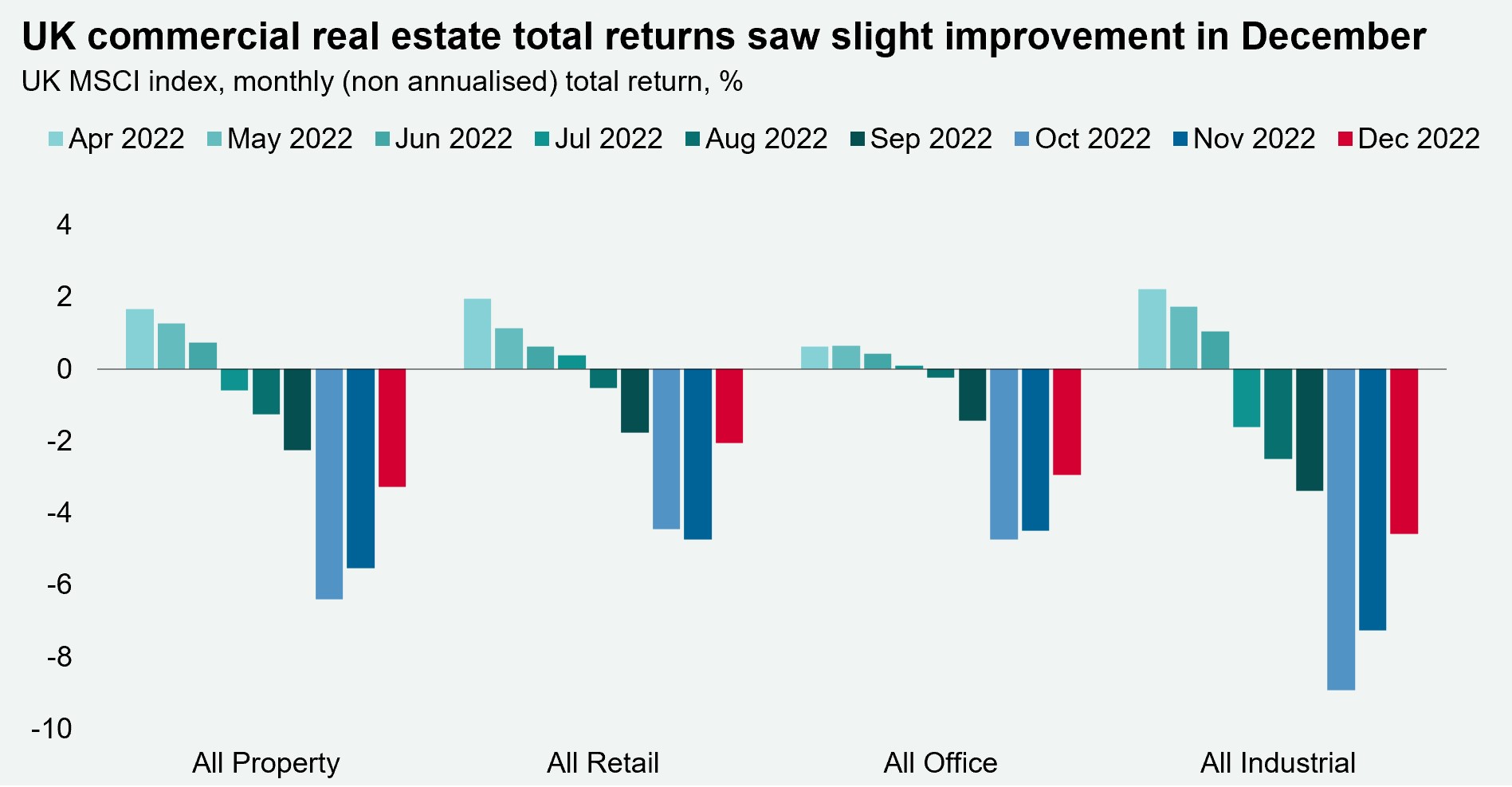Leading Indicators | Inflation | Sterling | Green Investments
Discover key economic and financial metrics, and what to look out for in the week ahead.
2 minutes to read
Here we look at the leading indicators in the world of economics. Download the dashboard for in-depth analysis into commodities, trade, equities and more.
UK inflation slows for the second consecutive month
The UK annual inflation rate slowed to 10.5% in December, from 10.7% in the month prior. This is the lowest rate of inflation in three months, following October’s 40-year high of 11.1%. Alcohol and Tobacco, Clothing and Footwear, Transport and Recreation and Culture all saw prices decelerate in the 12 months to December. With inflation starting to fall and energy prices back down to levels seen pre Russia/Ukraine war, economists have adjusted inflation forecasts. Oxford Economics lowered its forecasts for average CPI inflation by 0.7ppts to 6.8% in 2023 and by 0.2ppts to 2.3% in 2024. With lower inflation expectations for 2023, Oxford Economics also forecasts GDP to be better than expected, contracting by -0.7% this year, improving from forecasts of -0.9% last month, before rising +1.6% in 2024, versus +1.5% last month.

Sterling hits a 7-month high
Following strong UK wage growth and improving inflation figures published last week, sterling hit a seven month high of $1.25. It has since settled at $1.24, currently. Markets are also responding to comments made last week by Andrew Bailey, Governor of the Bank of England that a corner may have been “turned” with inflation, despite not steering against the market implied peak base rate of 4.5% this year. At the BoE’s next monetary policy committee meeting on 2nd February, money markets have already fully priced in a 25bps rate hike, while market pricing indicates there is currently a 70% chance of a 50bps rate hike, according to Refinitiv. Similarly to sterling, the euro hit $1.09, its highest level since April 2022 after an ECB governing council member outlined that the central bank would rase its base rate by 50bps at its next two meetings.
Financial commitments to green investments gain momentum
Green investments and their potential impact on growth, dominated Davos headlines last week. The US launched the $369 billion Inflation Reduction Act, which includes subsidies aimed at attracting businesses to invest in green technologies. In response, the President of the European Commission announced that the EU would loosen restrictions on green investment subsidies and accelerate permits for new projects. While the UK is yet to announce equivalent measures, its planned interpretation reform of Solvency II could unlock “tens of billions of pounds of investment” which could be focused in a similar way to the US and EU. An independent review of the UK’s net zero target found that the global net zero transition could be worth £1tn to UK businesses by 2030, with the UK’s energy transition forecast to support 480k jobs.
Download the latest dashboard